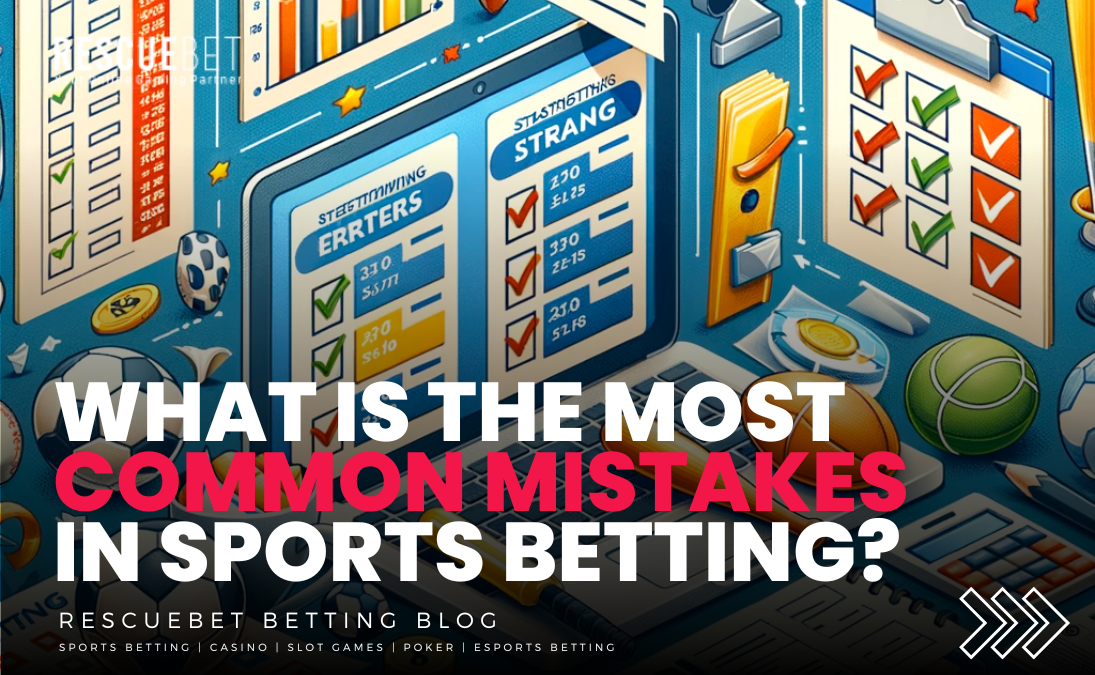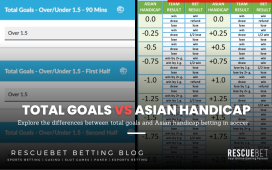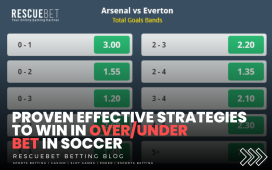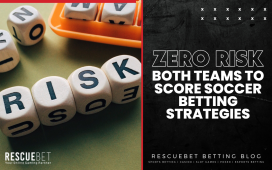While making mistakes when betting is common, punters can learn from those mistakes. By understanding the most common types of mistakes sports bettors make, punters become more aware of their own mistakes and how to fix them when making wagers.
Top 10 Mistakes In Sports Betting
Sports wagers don’t always make the right decision when betting. There are also some mistakes committed that can risk bettors and the players. Let us discuss some of them.
1. Not Bet-sizing
Bet-sizing is placing the right amount for a particular wager to maximize the potential winnings and minimize losses. Essentially, a conservative punter can choose to wager not less than 1% and not more than 5% of their entire betting funds based on the wager’s type, nature, and level of risk.
2. Selecting The Wrong Betting Market
Selecting the wrong betting market for a sports wager can result in losses most of the time. For example, a punter can make other wagers instead of a no-draw bet on two evenly matched teams. Moreover, punters have access to so many betting markets that novice punters can select the wrong betting market by mistake.
3. Secure a Portion Of The Bankroll
Securing a portion of the bankroll means taking a part of the winnings from previous wagers and storing them separately. Most punters make the mistake of not securing their bankroll and end up wagering all their profits. Punters that don’t guarantee a portion of their bankroll are at risk of losing it all.
4. Making Risky Wagers
The lure of winning big often pulls novice punters to making high-risk and high-reward wagers. However, high rewards come with the added risk and a lower probability of winning. A few risky bets chasing dream profits can wipe all the funds from a punter’s betting wallet. A punter should make risky wagers based on the level of risk they’re willing to undertake.
5. Not Understanding The Sporting Event
Sporting events are bound by rules and conditions for events such as points, goals, fouls, etc. to occur. Understanding the sporting event in detail gives a punter an edge when making a wager.
6. Biased Wagers
Bias can impact a punter’s ability to make an effective wager. Preferences in sports betting include favoritism of teams, not wagering on rivals, using only past performance or recent performance as a metric, etc. Biases exist in all forms of investing and betting, and punters aware of these biases can learn to make a profit more consistently. Emotionally charged wagers or wagers based solely on emotion or feeling are also biased and aren’t as effective as logical wagers.
7. Not Knowing When To Quit
Knowing when not to make a wager or quit making wagers is as vital as learning when to make a wager. A punter can’t win every chance placed. However, a punter can minimize bets placed on potential losing wagers. Minimizing losing wagers includes securing a punter’s bankroll and increasing a punter’s profit.
8. Using Funds You’re Not Willing To Lose
Individuals must never use funds they’re not willing to lose in any aspect of investing, betting, or utilizing money. A punter must separate savings, investments, and household expenses from betting funds and not use one for the other. Punters that take loans to make wagers or invest end up suffering significant losses.
9. Not Comparing Odds
Punters don’t compare odds from several providers to select the betting website with the best odds. Choosing better odds for the same wager is a value betting opportunity resulting in higher profits for a punter. Not comparing odds by different betting services also leaves a punter short of options in terms of odds and access to betting markets.
10. Not Learning From Past Mistakes
Punters need to learn from past mistakes to avoid making those same mistakes in similar betting situations in the future. Committing the same mistake many times is a recipe for making consistent losses that could have been avoidable. An example of a mistake could include selecting the wrong betting market for a sports wager and then repeating that same wager multiple times without doing any research.
























